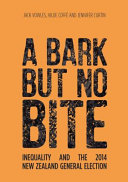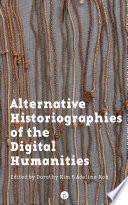Year
2016
Publisher
ANU Press
Type
BOOK
Category
Social Science
Language
English
Pages
398
ISBN
978-1-76046-071-6
Last Update
09-Sep-2024
Keywords
POLITICAL SCIENCE / Human Rights;POLITICAL SCIENCE / World / Australian & Oceanian;SOCIAL SCIENCE / Women's Studies;SOCIAL SCIENCE / Gender Studies
Related
See More
Human Rights, Sexual Orientation and Gender Identity in The Commonwealth

A Bark But No Bite, Inequality and the 2014 New Zealand General Election

Break Up the Anthropocene

Alternative Historiographies of the Digital Humanities,

The Anesthesiologist Workforce in 2013, A Final Briefing to the American Society of Anesthesiologists

In Praise of Mortality